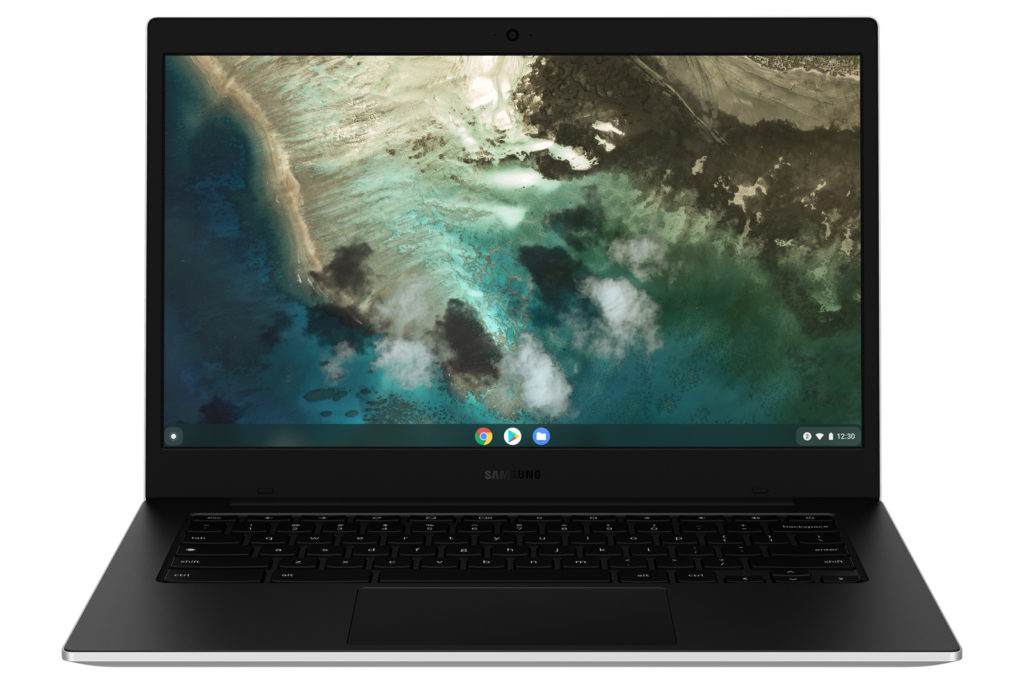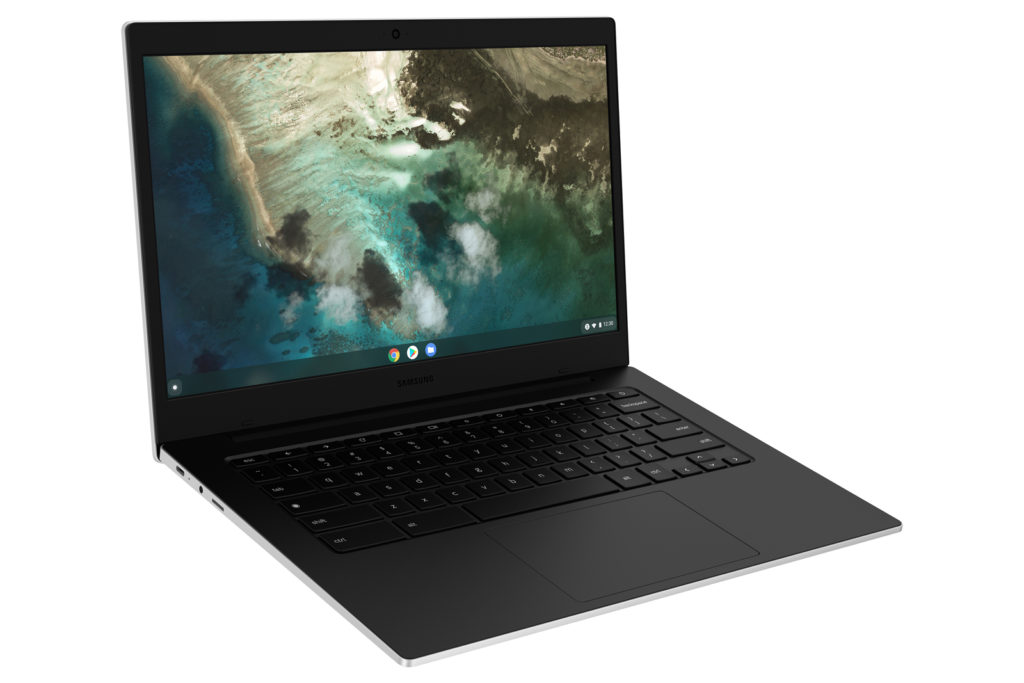Back in 2021, the Samsung Galaxy Chromebook Go debuted as a $299, entry level, 14-inch laptop. You can still purchase one, typically for less. Amazon currently sells the Chromebook Go for $208. However, It looks like a smaller model is coming in 2023. The Samsung Galaxy Chromebook Go 11 appears on the Chromium Dash website, as pointed out to me by a reader.

I’ve scoured Samsung’s site and the web in general looking for additional details, without any success. But there’s still a bit of information we put together on our own. And it’s rather disappointing.
Samsung Galaxy Chromebook Go 11 hardware
Obviously, the Samsung Galaxy Chromebook Go 11 will have an 11-inch display. More accurately, it will likely be an 11.6-inch panel, as that’s a fairly standard size. The only way it could see an exact 11-inch screen was if this were a ChromeOS tablet. I don’t think that’s the case though.
The baseboard name of “dedede” should sound familiar. That base board spawned off many devices back in 2021. Here are just a few to give you an idea of the base board capabilities:
- HP Chromebook x360 11 G4 EE
- Lenovo 500e Chromebook Gen 3
- Lenovo Flex 3i Chromebook
- HP Chromebook 14a
- Asus Chromebook CX1500
- Samsung Galaxy Chromebook Go
Yup, the Samsung Galaxy Chromebook Go 11 uses the same baseboard as its older, larger brother. That strongly suggests the same CPU as the Go 14, which is an Intel Celeron N4500.
That’s a Jasper Lake chipset that was new in 2021 but has been superseded by newer Intel processors like the new N100 and N200. But I wouldn’t expect a CPU upgrade on the upcoming Galaxy Chromebook Go 11. It has the exact same AUE, or auto-update expiration date as the Go 14, of June 2030. If somehow there was a newer CPU in the Go 11, the AUE date would likely be June 2031.
Since the Go 14 had a lackluster 1366 x 768 display, I’m expecting the same in the smaller version. A meager 32 GB of eMMC storage and 4 GB of memory are in the Go 14. Perhaps at the least the storage capacity gets a boost this time around.

The Go 11 is more of the Same-sung
We can’t really glean any other information about this smaller refresh from Samsung other than it doesn’t appear to be much of a refresh at all. Just a smaller version of a two-year old entry-level Chromebook. Frankly, I don’t get it.
What’s even stranger to me is that work on this specific device started in 2021, right alongside the 14-inch model. It’s as if Samsung got everything ready to launch the Galaxy Chromebook Go in two sizes back then. And then it didn’t. Now all of a sudden, Samsung is ready to launch a bare bones 2021 Chromebook in 2023?
I’ve privately questioned Samsung’s commitment to the ChromeOS ecosystem a few times in recent years.
Between lackluster device launches and then barely a peep with new devices as other brands move forward, I simply don’t see it. And that’s OK. Most of Samsung’s revenues come from its mobile and chip divisions, not to mention televisions and appliances.
If Samsung wants to focus on those more profitable segments and drop out of making ChromeOS devices, I get it. I’d rather see more brands in the Chromebook market than less, but again, I get it. That would be better than the halfhearted effort we currently see from Samsung when it comes to ChromeOS. And even though we have very limited information on the Samsung Galaxy Chromebook Go 11, that’s exactly what this device sounds like: A halfhearted effort.



7 Comments
Forget about Samsung taking chromeOS seriously unless Google allows OEMs to use mobile SOCs on chromeOS devices again. (Example: the Acer Chromebook C810. A 13″ screen with the same Nvidia Tegra K1 SOC that is used in the Nintendo Switch.) Were Google to allow MediaTek Dimensity 9xxx, Qualcomm Snapdragon 8 Gen x and Samsung Exynos 2xxx SOCs to be used to make chromeOS devices, then Samsung would be able to come out with chromeOS versions of their tablets, the way that HP releases chromeOS versions of some of their x360, Dragonfly and other Windows laptops. But with Samsung forced to use either x86 chips or bad and expensive ARM PC chips, it makes more economic as well as strategic (branding) sense to focus on Windows laptops, as Windows allows them use Samsung-exclusive apps. Those Samsung apps give customers a reason to choose Samsung Windows laptops over HP, Dell, Acer etc. And just as important, they give those customers a reason to choose Samsung smartphones over iPhones. They also allow Samsung to sign cross-licensing deals in order to preload apps on their hardware, such as the $8 billion one that they have with Microsoft.
As it is, Samsung has no incentive to make a competitor to the ASUS Chromebook Flip CX5. Samsung would have to accept a smaller profit margin than Samsung likes to make on premium and midrange hardware because ASUS (as well as Acer, HP etc.) will offer the same specs for hundreds less And there is no way to get you to use said Flip CX5 competitor to buy a Samsung Galaxy S2x phones and Samsung Galaxy Buds headphones as opposed to an iPhone and AirPods.
Realize that this actually works for Samsung. They sell 20-30 million Android tablets a year, nearly all to people who also buy their smartphones. They have also successfully convinced a niche of people – especially in their home South Korea market – that taking photos and videos on Galaxy smartphones and then transferring them to their Samsung Galaxy Book Windows laptops (using OneDrive instead of Google Drive thanks to that cross licensing deal mentioned above) to edit them is … well at least SIMILAR to doing the same with an iPhone and MacBook. It is up to Google to give them a reason to do anything different, like use Snapdragon-powered chromeOS tablets to try to grab some iPad Air tablet market share. Of course, Samsung would respond “that would require turning the Crostini Linux container into a full fledged Debian VM with a KDE desktop” but hey that is another story for another day.
Some people like me like smaller and lighter Chromebooks. I just got the Samsung Chromebook 2 360. Its the same size as the 11.6″ versions but with a 12.2″ screen. It’s lighter and a bit smaller than my Lenovo 11.6″ Chromebook. For me I like the upgraded specs from my old machine in the same form factor. Most people I see out at coffee shops, etc. have 13″ screens. For true mobility and ease of carrying the 14″ might be too big and heavy for some.
I have no issue with smaller screened tablets and laptops. Not at all! Putting two year old hardware in a “new” small Chromebook is my point. There are plenty of better options in this size from other brands with newer hardware that will last longer and be a better value.
https://www.samsung.com/ie/computers/chromebook/galaxy-chromebook-go-celeron-4gb-64gb-xe310xda-ka1uk/
https://www.samsung.com/uk/computers/chromebook/galaxy-chromebook-go-lte-celeron-4gb-32gb-xe315xda-ka2uk/
Nice find! Looks like double the storage, which I expected and…. that’s about it.
Another thing that Google could do in order to get Samsung on board: you mentioned something last year about Google allowing custom containers and/or VMs to be installed on Chromebooks? Google should allow an “OEM container” or “OEM VM”. That would allow Samsung (or anyone else who wants to make a Chromebook) to put their own apps and custom code on Chromebooks in a way that:
A. users can disable it if they want to
B. it is sandboxed from everything else
Google could even put a kill switch with “regularly provide security and other updates or we will disable it”
Short of something like that, Samsung is always going to make more money with Android and WIndows devices that they can customize
Samsung don’t care about ChromeOS, they only make them time to time to keep Google happy.
Samsung will care about ChromeOS if they can put their own apps and services front and center like they can with Android and Windows.